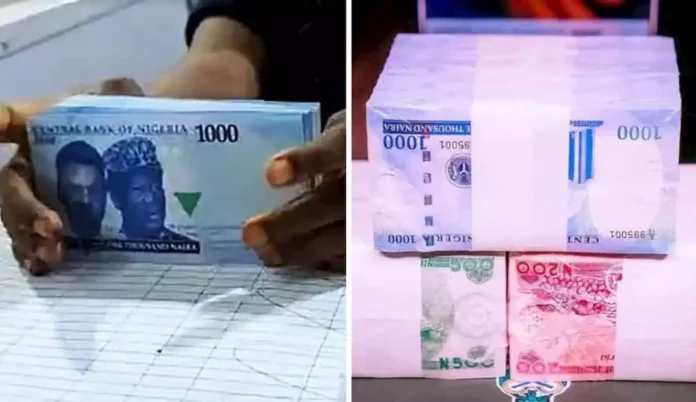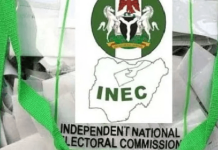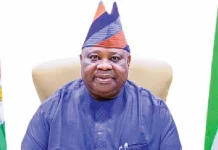On Monday, the management team of the Central Bank of Nigeria will meet to discuss the crisis that the naira redesign program has brought about and to come up with solutions for the severe cash shortage that has nearly brought the country to a standstill.
The National Council of State’s suggestion that the central bank print more newly created N1,000, N500, and N200 notes or reissue the older notes that were taken out of circulation will also be covered at the meeting in order to alleviate the current cash shortage.
A new directive on whether or not to continue accepting deposits of the old notes from deposit money banks may be given at the meeting, which is expected to take place at CBN headquarters in Abuja.
One of our correspondents was informed on Saturday by a CBN representative that a decision would likely be made at the meeting regarding the continued use of the old notes.
He asserted, however, that logistical challenges and the Nigerian Security Printing and Minting Plc’s capacity limitations for the printing of the new notes would make it challenging to put the suggestion to increase money production into action.
The CBN was considering hiring foreign firms to print the redesigned naira notes due to the Mint’s inability to keep up with demand and the resulting current nationwide shortage.
The CBN reportedly removed approximately N2.1 trillion worth of the previous notes from circulation, while the Mint was able to print N1,000, N500, and N200 notes worth N500 billion. However, the Mint may not be able to print any more notes at this time.
In light of the security implications of the notes’ continued scarcity, the cost of printing new notes while reissuing the old ones, and the execution of the Supreme Court’s interim order that the old notes should be permitted to circulate alongside the new ones, the head of the central bank stated on Sunday that the Council of State’s recommendations would be carefully considered.
Read also: Terrorists murdered 10 troops from Niger
There is uncertainty.
Bankers, traders, and ordinary Nigerians are unsure whether the old notes should be recognized as legal tender in light of recent events, though.
Attorney-General of the Federation and Minister of Justice Abubakar Malami (SAN) declared that the Supreme Court’s order would be complied with but that it would also be appealed.
A manager of a Tier-1 bank told one of our correspondents, under the condition of anonymity, that confusion was rampant because the CBN had not issued a counter-directive to its earlier directive that the old notes not be reintroduced into circulation beginning on Friday, February 10, 2023.
The bank supervisor said, “We don’t know what to do about the situation as a whole. The most recent communication from the CBN to us stated that we should begin paying customers up to N20,000 over the counter and that the old note withdrawal deadline of February 10 is still in effect.
“Older naira deposits from customers are no longer accepted. On Friday, we came to an end. For instance, we did not open today (Saturday) to accept deposits, in contrast to earlier directives from the central bank. We were advised to stop compiling previous Friday notes by our zonal head. Unless a new directive is issued on Monday, we won’t accept deposits of old naira notes any longer.
In the meantime, some gas stations in the states of Lagos and Ogun on Saturday insisted only on new notes, transfers, and point-of-sale payments instead of old naira notes from customers.
A similar situation occurred in supermarkets and fast food restaurants, despite some traders in different markets rejecting the old notes.
Residents of Abakaliki, Ebonyi State, have urged the federal government to speak out immediately in favor of suspending or extending the deadline for exchanging old naira notes.
Residents claimed that the need for the appeal resulted from the state’s merchants and gas stations refusing to accept the old naira notes in separate interviews with the News Agency of Nigeria on Saturday.
Concerned citizens pointed out that the recent Supreme Court decision suspending the February 10 deadline set by the CBN was violated by the Abakaliki business community’s refusal to accept the old notes.
Mr. Lawrance Onwe, a lawyer, asserted that Nigerians deserved to know from the government the true position of the naira swap in order to prevent the confusion, chaos, and panic the development has caused since the deadline passed on Friday.
Civil servant Mr. Silas Nkpuma claimed that he nearly got into a physical altercation with a commercial motorcycle driver because the latter insisted on being paid with a brand-new naira note.
The man refused to send me a mobile transfer, and I didn’t have any new naira notes with me “He asserted. I was held hostage by the cyclist until I was rescued by a sympathetic bystander.
“I think the confusion brought on by the rejection of the old notes could have been prevented if the public had been properly informed by relevant government organizations.
The fact that gas stations and large corporations started rejecting the old money on Friday is more worrisome than the rejection’s apparent basis in ignorance.
Mrs. Chika Iteshi, a food vendor, claimed that she stopped collecting old naira because okada and keke (tricycle) riders refused to accept it. The Ophoke-Abba, Kpiri-Kpiri Market is where you can find her.
Similar to this, on Saturday some Enugu citizens started to reject the old naira notes.
According to a NAN investigation, many residents who still had old naira notes in their possession had trouble using them.
When he offered a bus driver the old N500, which he rejected, Mr. George Nweze, a resident of Awkunanaw in the state’s Enugu South Local Government Area, claimed to have witnessed the incident.
“The fact that the driver refused the old note surprised me because I had assumed he could use it to pay for gas without any issues. He flatly rejected it, “said Nweze.
A small-time trader named Mrs. Marta Chukwu claimed that her customer had rejected the old naira notes, totaling N25,000, that she had used to pay for provisions.
Chukwu claims that her client declined to accept the notes from her and claimed that he had stopped collecting old notes on Friday.
NAN observed that before boarding, tricycle drivers would inquire as to whether potential passengers had recent cash.
Mr. John Nwabueze, a civil servant, claimed that despite giving an outdated note to a taxi driver on his way to work on Friday, things had changed by the time he arrived home that evening.
A tricycle driver named Mr. Ejike Ogbodo asserted that the problem started when a NNPC mega station started refusing old naira notes.
When we were waiting in line to purchase fuel yesterday, the NNPC mega station employees refused to accept our old notes; as a result, Ogbodo stated, “We decided not to take old notes again.”
Similar to this, the Amalgamated Union of Northern Traders commended Bello Matawalle, the governor of Zamfara State, for directing security personnel to detain anyone who refused to accept the old naira notes for use in transactions on Saturday in Sokoto.
One of the governors who requested a restraining order from the Supreme Court to stop the Federal Government’s naira redesign policy was Matawalle.
The governor of Zamfara State received praise from Alhaji Sanusi Daudu-Nufawa, the union’s youth leader, for directing security personnel to closely monitor all business transactions close to markets in an effort to lessen general suffering.
Daudu-Nufawa claimed that drastic measures would be required if leaders wanted to successfully compel people to transact using both the old and new notes.
The effort, according to him, would further lessen and ease the suffering that ordinary Nigerians were currently experiencing as a result of the shortage of both the old and new naira notes.
He expressed the hope that the circulation of old notes and their gradual replacement with new notes would lessen the suffering of the populace.
Unions suggest a strike threat.
The National Union of Banks, Insurance, and Financial Institution Employees and the Association of Senior Staff of Banks, Insurance, and Financial Institutions have threatened to fire their members if they receive abuse from irate customers.
According to NUBIFIE President Anthony Abakpa, “Nigerians are suffering” and “Bank workers are also the target.” Customers are sending angry messages to our staff members who work in the staff department. The CBN is the only regulatory body in charge of monitoring banks. So, if it gives Bank A or Bank B a certain sum, it ought to be able to keep an eye on them and figure out which bank is acting morally. If nothing is done after a week, I think we will plan a shutdown.
Olusoji Oluwole, President of ASSBIFI, said in a similar vein that banks could only give customers the amount of cash that was made available to them.
The sad fact is that although banks are receiving funds, there isn’t enough of it going around, according to Oluwole. The only thing that can be issued is what the banks have. But we are extremely concerned because it essentially undermines public confidence in the banking system and puts the workers in danger by informing an already agitated public that banks are the ones holding the money. That is currently the sad part of it.
Beyond that, I think that people simply want access to money, regardless of how recently designed or even how old they are. To the N100, N50, and N20, respectively (notes). The CBN should distribute them.
“We are confident that it has them on hand, and when it delivers them, it ought to bring the distributable ones rather than the damaged ones. That ought to be doable, or at the very least, contribute to some relief from the tension.
No problems – CBN
According to the CBN, the NSPMC has the capacity and resources to produce the required number of indented naira notes.
The nation’s top bank continued by saying that it was working to disseminate the new notes more widely.
The apex bank’s director of corporate communications, Osita Nwasinobi, claimed in a statement dated Friday but distributed on Saturday that the bank’s governor, Godwin Emefiele, had been misquoted regarding the Mint’s capacity to print the required banknotes.
According to some news sources, Emefiele reportedly admitted that the Mint lacked the resources to print the new notes, which explained the current shortage.
Nwasinobi asserts that the CBN governor never stated this during his Friday presentation to the National Council of State.
For the record, Mr. Emefiele said during the meeting that the NSPMC was working to print all naira denominations to meet the needs of Nigerians who wanted to conduct transactions.
The CBN stated, “We are alarmed at the extent to which vested interests are trying to manipulate the facts and turn the public against the bank,” while acknowledging the concerns voiced by all parties regarding the distribution of the naira.
Nwasinobi continued by saying that the CBN was committed to upholding the CBN Act of 2007 as it related to the CBN’s monetary policy responsibilities (as amended).
We also want to restate that the NSPMC has the ability and resources to produce the required amount of naira, the speaker said.
The bank therefore wishes to make an appeal to the public to disregard the said reports and exercise more restraint as we work diligently to increase the circulation of the new notes in the country.
The director of the CBN denied the claims and claimed that they were illogical and inconsistent with how the banking system functioned in response to a voice note that was making the rounds on social media and claimed that the CBN intended to close some banks, particularly in a geopolitical region of the country.
Nigeria sues the FG
The Niger State Government has filed a lawsuit against the Federal Government in the Supreme Court over the naira redesign policy.
Nasara Danmallam, the state’s attorney general and commissioner for justice, said in a statement on Saturday that the case with suit number SC/CV/210/2023 was reportedly filed on Friday.
The CBN’s deadline for the currency swap was to be extended, and the old N200, N500, and N1,000 notes should be taken out of circulation, the state government reportedly asked in the statement.
The three-month deadline set by the Federal Government for the nationwide withdrawal of old notes was unjustified, the statement claims, and it violated sections 13, 14(2)(b), and 17(1)(c) of the 1999 Constitution as amended.
The state government alleged that the absence of the redesigned notes had caused untold hardship and suffering to state residents, particularly those residing in rural areas, in the affidavit supporting the original summons.
The state government expressed its concern for the hardships the policy had brought on the people in the statement and pledged to keep pursuing legal avenues to lessen their suffering.
economists and attorneys respond
Economics professor Cletus Agu asserted that the Supreme Court’s ruling was unimportant and that the shortage of the naira was a manufactured issue created by the community and fed by banks and the general public.
According to Agu, it’s a problem that the general public and politicians have placed on the commercial banks, not the central bank. It is not a legal issue; it is pure economics. Customers keep withdrawing cash without depositing it, and bank managers are busy selling naira outside of the banks. The economics discussion has been injected with politics.
“When there are consistent lines at Automated Teller Machine galleries every day, something is wrong. It would be simpler if the money were moving. People are withdrawing and storing the money, and bank executives are dispersing it to well-known politicians and business leaders. Why are only the poor in pain and the wealthy are not wailing?
He continued by saying that the Supreme Court would never settle a dispute by imposing sanctions and that one of the CBN’s objectives is to put money back into circulation so that cash can flow.
“In this case, the Supreme Court shouldn’t have made a decision. What do they want to achieve? What happens after a five-day extension, which is the only one available? He continued, “Let’s wait until they bring up the next judgment.
Professor of Economics at Afe Babalola University in Ado-Ekiti, Ekiti State, Samuel Igbatayo described the implementation of the cashless policy as a strategy to collapse the economy.
He claimed that the military strategy had destroyed the economy and left Nigerians stranded without access to their money.
Igbatayo said that even though he supported the cashless policy, he believed it should be implemented gradually for the economy’s sake.
Given that the Supreme Court properly considered the effect on the masses, he said, “it is hardly surprising that it has ruled in the litigants’ favor.” Due to the limited supply of the new notes and the transitional period, the economy will suffer. It will be worse for those who reside in areas without access to financial services.
“There aren’t many banks and other financial institutions in rural areas, and some residents there don’t have bank accounts. These people must be taken into account when implementing the policy. Unquestionably, a cashless society must be implemented, but there must be a gradual transition.
“To make sure there is enough money in circulation to support economic activity across the entire country, I think the CBN needs to start over and implement the plan over a considerable amount of time. That makes sense, and I believe the CBN will be aware of the importance of its actions as well as their inherent danger.
He argues that the dearth of the naira and the high cost of fuel have sparked social unrest, which has caused riots to break out all over the place, as well as bank robberies and other types of vandalism. He pleaded with the government and those in charge of formulating policy to consider everything and to carry out the plan for a sufficient amount of time.
The CBN’s cash withdrawal cap, according to Nnamdi Aduba, a professor of international law and human rights at the University of Jos, will promote vote-buying during the general elections.
Aduba asserted that the policy was ineffective and added that the suffering it had inflicted on the populace was sufficient to make them fall prey to low-cost inducements during the elections.
He claimed that politicians would use the funds from the comfort of their homes and devise other strategies to influence voters.
Aduba alleged that “the CBN and the banks are just out to punish poor Nigerians.” I doubt that a free and fair election will be possible given the current situation. People now get up early to go to gas stations or banks and stand in line for their own hard-earned money, making it impossible. Who will people vote for if you suggest they cast ballots?
I want to know who you are preventing from using this money. Purchasing food, paying for transportation, and other goods all present problems. Could you please elaborate on what you mean when you say it will stop vote-buying? Is the only factor money?
“If you were living in poverty, you would expect that when the election was just a few days away, someone would pay for your transportation and food. Would you vote against that candidate in the upcoming election, please?
“If they target politicians, they are aware that the majority of them will remain in their homes and collect the cash; instead, ordinary Nigerians will line up. Therefore, if the policy’s intention is to catch politicians, it has not been successful.
“Why then the rush? You’ve had seven years to think about this; why are you acting so quickly and establishing such a tight deadline now?
Join Television Nigerian Whatsapp Now
Join Television Nigerian Facebook Now
Join Television Nigerian Twitter Now
Join Television Nigerian YouTUbe Now





